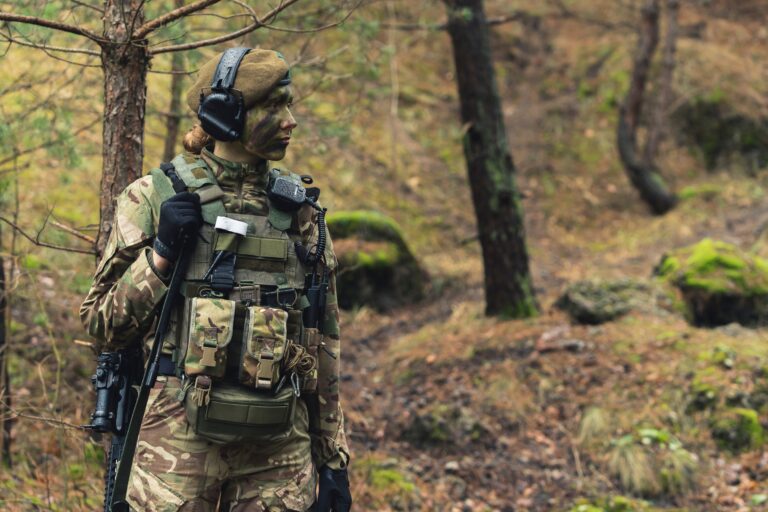Military Mental Health: Why more needs to be done to help those suffering in the wake of COVID-19
Mental health problems affect one in four people in any given year, ranging from common problems such as depression and anxiety, to rarer problems such as schizophrenia and bipolar disorder [source: mind.org.uk]
Over the last few years there has been an increasing awareness and understanding of the importance of mental health and finally an acceptance that mental health struggles are as significant as physical injuries. The importance of this can be no more clearly seen than in the military where the stigma associated with suffering a mental health illness as a result of military service is no-longer something to be ashamed of.
Mental Health in the Military
Military personnel go through a unique training regime which instils resilience, confidence and discipline. But that does not mean those individuals are not prone to developing mental health problems, especially when you think about the environments they’re exposed to and the pressures of their role.
Mental health problems experienced by military personnel are the same as those experienced by the general population, save that experiences during service and the transition to civilian life mean that their mental ill health may be triggered by different factors. Post-Traumatic Stress Disorder (PTSD) is probably the condition most commonly associated with those serving in the Armed Forces, along with depression, anxiety and substance abuse.
PTSD is an anxiety condition which is caused by a traumatic event or several such events. For more information about PTSD and the symptoms associated with it, please see my colleague’s blog here.
In a military setting, PTSD is most likely to be triggered by:
- Witnessing or being involved in a particularly traumatic event whilst serving on operational tour;
- Being the subject of bullying, harassment or abuse which not only results in physical injuries but also triggers a psychological injury, resulting in PTSD;
- Being involved in a military road traffic accident (RTA);
- Witnessing another person being injured or suffering psychological abuse
Treatment for PTSD
If you are diagnosed as suffering from PTSD or another mental health condition during your service, treatment should be provided within the military. This often involves referral from a Medical Officer to a psychiatrist at DCMH who will make a diagnosis and hopefully commence treatment. Treatment may involve a combination of medication and therapy, which may take the form of Cognitive Behavioural Therapy (CBT) or EMDR. The path to recovery is likely to be a long and difficult one, but with the right treatment and support an individual can overcome the daily struggles their condition imposes.
There are a large number of individuals who are sadly not diagnosed as suffering from PTSD until they have left the military, either because they did not feel comfortable enough to report their symptoms or because those symptoms did not become apparent until they left the military. There are also a number of individuals who are diagnosed with PTSD shortly before their medical discharge from the military and for whom treatment has not commenced before their discharge.
It is these individuals who face the biggest struggle in securing the treatment they so desperately need, often at a time when they also face the struggle of having to re-adjust to life on civvy street.
Of course treatment should be available on the NHS, but those affected are often unsure of how to secure that treatment, aren’t registered with a civilian GP and can’t afford to be placed on a long waiting list until treatment is available.
As a result they often turn to military charities, many of which are run by ex-military personnel, to provide them with the support and treatment they need, and to help them get back on their feet when faced with building a new life post-military.
Charities who often support these individuals include:
- SSAFA: The Armed Forces Charity, who provide support and advice for current serving and former military personnel
- Combat Stress, who provide specialist mental health support and treatment for Veterans
- PTSD Resolution, who provide specialist mental health support and treatment for Veterans
- Veterans Lifeline, who identify, understand and support Veterans in the community
Why more must be done in light of COVID-19
I personally feel that the current pandemic has highlighted the failings of the current system and why more must be done to help those struggling with mental health problems. It should not fall to military charities to provide life-saving treatment for those suffering from PTSD and alike when leaving the Forces and it should not take an unprecedented pandemic to realise this.
The stark reality of the impact which COVID-19 has had on charities who provide vital treatment is devastating. This is no more shown than by the case of Staff Sergeant Jamie Ferguson who very sadly committed suicide last month at Leuchars Military Base in Fife as a result of his own mental health struggles which went unnoticed. In a video recorded just moments before his death, he gave the harrowing message that “I asked for help but no-one was listening.” His death was one of five suicides recorded in a week last month, showing that suicide figures have increased in the wake of COVID-19.
SSgt Jamie Ferguson’s death has resulted in many asking the Ministry of Defence (MoD) not to rely on military charities to provide vital treatment to former service personnel. Conservative MP, Julian Lewis, is tabling a parliamentary question on veterans’ suicides and has said, “Tragedies of this sort will continue without a national centre for excellence for personnel’s mental health, just as we have a centre for physical injuries and rehab.”
Charities are struggling. Funding has dried up and face-to-face therapy sessions have been impossible in the light of social distancing. Whilst it has been possible for some treatment to go ahead via video link, this is not always appropriate and the reality is that some may have to wait until the pandemic has passed to resume or commence treatment. Some may simply not be able to wait.
So what is the solution? A better managed treatment programme in the military and provision for follow-up care on leaving the military would be a good start. Funding for treatment and less reliance on charities to pick up the burden would be even better.










